Prologue, Reflection, and Jubilation on York
-
Ships in 1 to 2 weeks
Details
Description
SKU: MN.12-120
Composed by James Biery. Recital Music. Spiritual. Instrumental part. MorningStar Music Publishers #12-120. Published by MorningStar Music Publishers (MN.12-120).UPC: 688670121203.
In Biery's search for possible material on which to base this commission for The Congregational Church of Greens Farms, Westport, Connecticut, he came across the hymn O Lord, Almighty God, Thy Works. The history of the text coupled with the quirky angularity of the melody proved irresistible. The hymn was one of several hymns and spiritual songs found in the third edition (1651) of the Bay Psalm Book. The Bay Psalm Book was published by the Congregationalist settlers in the Massachusetts Bay Colony; in 1640 it was the first book published in English in North America. O Lord, Almighty God was popularly known as The Song of Moses and the Lamb and was sung at the first great council of Congregational churches in New England, the Cambridge Synod of 1648. The hymn is sung to the tune YORK, which is one of the twelve Common Tunes from the Scottish Psalter of 1615. At one time in England it was second only to OLD HUNDREDTH in popularity. Even though the Prologue, Reflection, and Jubilation is based on the tune YORK, the entire melody is not heard until the third movement. The Prologue is a tribute to one of Biery's favorite 20th century composers, Maurice Durufle. The running figuration heard throughout is built upon the first four notes of the hymn. The main theme, played on the string stops, begins with the ascending triad of the opening phrase of the hymn (transformed to the minor mode). The first movement melts into the second, a serene Reflection. Once again the melodic line begins with the first four notes of YORK. An improvisatory recitative passage leads into the final Jubilation. This movement pays homage to Calvin Hampton, the gifted and innovative New York composer who died in 1984, at the age of forty-six. Again the rising triadic motive is prominent, now in the major key. The hymntune is first heard in the pedal part, and then triumphantly in a final grand statement.
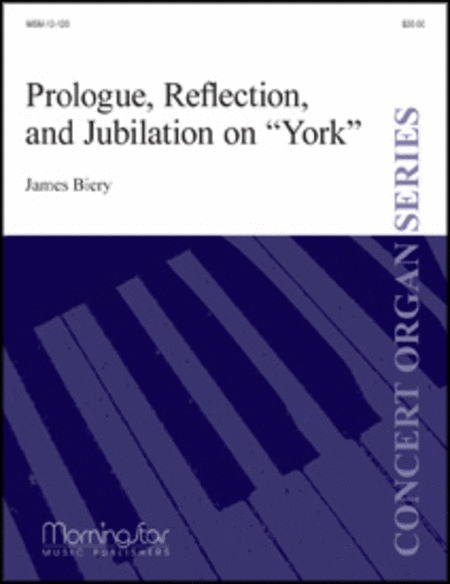

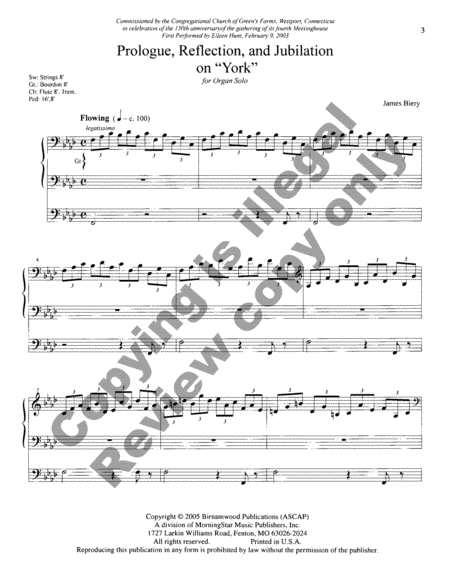
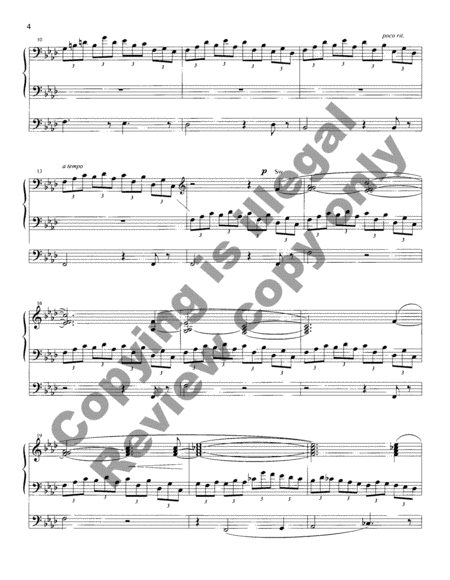
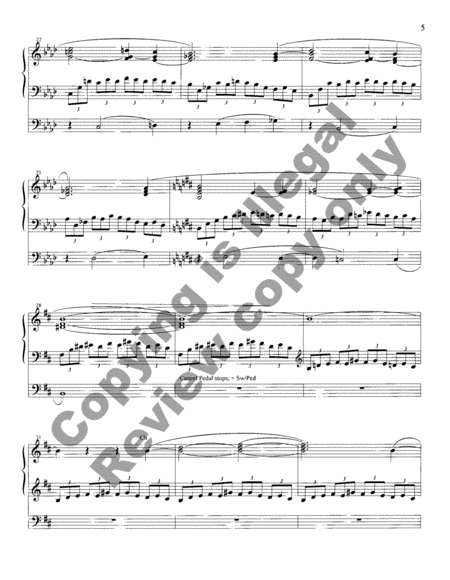
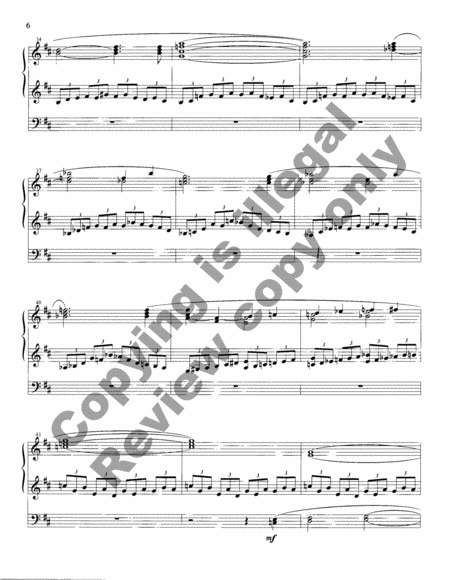
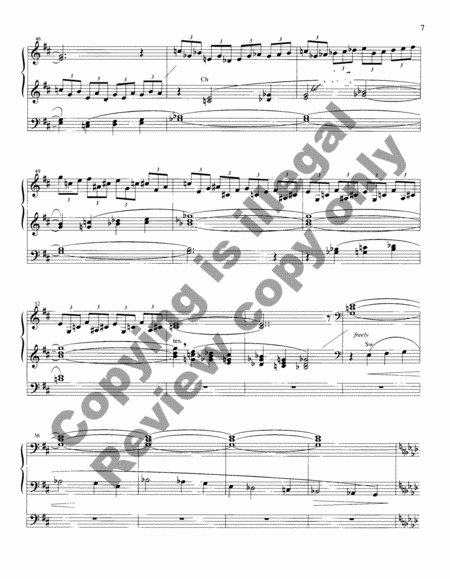
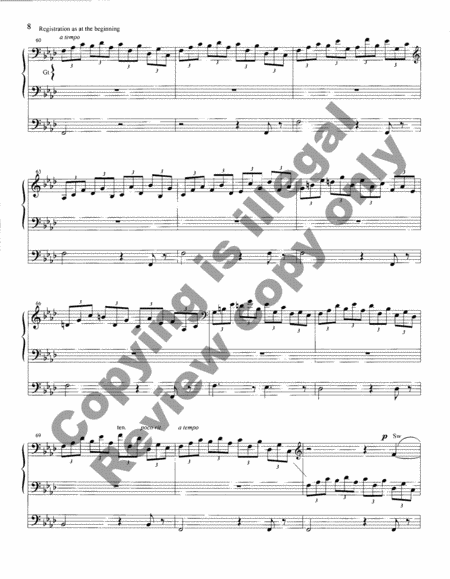
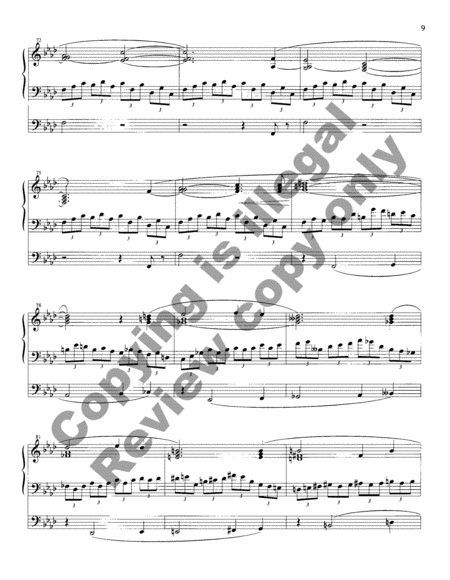
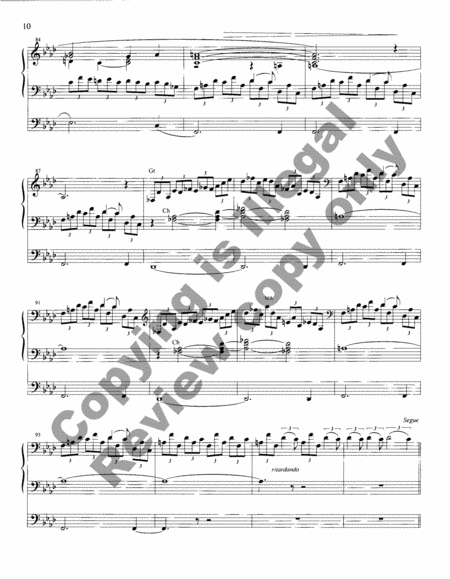
 Share
Share